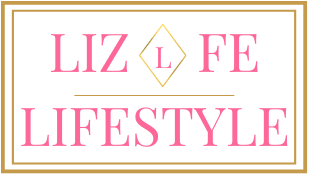
The Messages Rom-Coms Are Giving Young Impressionable Women
The term “chick flick” often comes with a negative connotation. They’re often considered vapid, shallow cash grabs that aren’t going to win any awards. The fact that these films are mostly marketed towards the female audience says a lot about how our society views women. The majority of these movies have very simplistic plots. They normally revolve around a female lead, who is for one reason or another unsatisfied with her life. Through a series of events or happenstance, she’s then brought to question her true desires. Finally, in the end, she is able to discover what she truly wants for her life and lives happily ever after. More often than not, this happily ever after is in the arms of a man.
While this structure is all well and good on it’s own, the themes and messages that are often portrayed within these films have been called into question by many modern feminist critics. In the modern day, it’s important for us to realize media’s effect on our subconscious. If that’s the case, it’s important to question what kind of messages we are sending to not only women, but impressionable young girls.
The Internalized Misogyny of the Mean Girl
The catty mean girl has become a staple within the chick flick genre. A person who radiates “feminine” energy: often clothed in the expensive fashion, with their hair done up like a prom queen. Even in movies that don’t revolve around the high school environment, the mean girl can still appear, accosting the main character in the workplace, gossiping about her behind her back, and attempting to steal the love interest for herself. While this isn’t to say there aren’t women like this in real life, what message is this sending to women?
Although we may not realize it, many women harbor internalized misogyny towards themselves and other women. It doesn’t make a bad people, as much as it makes a product of our society.
“Internalized misogyny does not refer outright to a belief in the inferiority of women. It refers to the byproducts of this societal view that cause women to shame, doubt, and undervalue themselves and others of their gender.”
Suzannah Weiss, feminist writer
While perhaps unintentional, the demonization of these ultra-feminine characters in these films leads people to believe that women who meet this extreme are catty, callous, and calculating. Similarly, female friendships are often demonized in these movies. The volatile nature of these friendships can lead women to feel as though they will always be under attack and scrutiny around their female friends. This attitude can be used to pit women against each other, each seeing themselves as the “right” type of woman.
The Geek to Gorgeous Makeover
We’ve seen a lot of examples of this trope in romantic comedies, especially those aimed towards teens. Movies such as The Princess Diaries, She’s All That, and The House Bunny have all utilized this trope to turn their plain main characters into leading ladies. Apparently if you just take off your glasses and style your hair, suddenly you’re a complete bombshell. However, when we disregard the glitz and glamour of these makeover montages, what kind of message are we left with?
Sure, it’s good to tell a woman that it’s okay to let their hair down and engage in “frivolous” activities such as fashion and makeup. In fact, this can even dispel some of the internalized misogyny mentioned earlier, teaching women to embrace their feminine side. However, these sequences can also have the effect of teaching women to conform to the societal beauty standards. To turn themselves into the “ideal” woman not for themselves, but for the gaze of others. (Specifically male.) That if you aren’t wearing a full coat of make-up or showing off a lot of skin then the boys simply won’t look your way. This can be exceptionally damaging to the self-esteem, especially to that of young girls who are already struggling with accepting their changing bodies and comparing themselves to unrealistic beauty standards.
Love is All You Need
Throughout many of these chick flicks, the main characters in question are plagued by a sense of insecurity. Whether it be in their appearance, their abilities, or them seeing themselves as simply a part of the crowd. It’s only when they meet their love interest that they realize through them that they are perfect just the way they are; that their good qualities were always within them. Beauty on the inside, so to speak.
While cliché, finding someone who loves and accepts you is a desire a lot of people can relate to. However, the messages within these films often tell that love is the only requirement a woman needs to be happy. In the film 13 Going on 30, the 13-year-old main character Jenna Rink makes the wish to be a successful businesswoman in her thirties, which subsequently comes true, placing her in the position of editor of a popular fashion magazine. Her successes, although she doesn’t remember getting to the top, aren’t given the respect they deserve as at the end of the movie she finds happiness in the love of her high school best friend Matt. So what’s the message? The only happiness a woman can find is in falling in love with a man and getting married. She is an intelligent professional, a successful businesswoman, and yet her career takes a back seat to her romance with Matt.
Some of you might be saying, “Well, these are just films. It’s just part of the plotline. It’s not going to do any harm to anyone.” Unfortunately, it’s naïve to believe that we as humans aren’t affected by the media we consume.
“The media may be teaching us what sorts of beliefs we should have about romantic relationships. It is possible that frequent exposure to romance and courtship in this idealized form could lead viewers to adopt equally idealized notions about relationships in the real world.”
Julia Lippman, U-M Department of Psychology
These films send a message that you need the love of someone else to love yourself or to truly feel satisfied. If you can only find those things through the eyes of another, then that only teaches a habit of codependence in both a woman’s relationships and friendships. Women need to be taught that they don’t have to focus on the validation of others to feel confident. We should be able to look at ourselves and give ourselves validation. Only then should we search for romantic relationships.
Chick flicks have so much more power within them that we would think. They have the ability to shape the young female audience, for better or for worse, and teach them habits that will affect them later in their lives. That’s why it’s important for us to teach young women behaviors that will benefits them, not behaviors that supposedly benefit society. We need to replace the perceived vapidity within these films with a sense of empowerment that will propel these young girls into adulthood, teaching them that there is no right or wrong way to be a woman.
Want to learn more about how the media can affect women? Check out other articles like this one!




